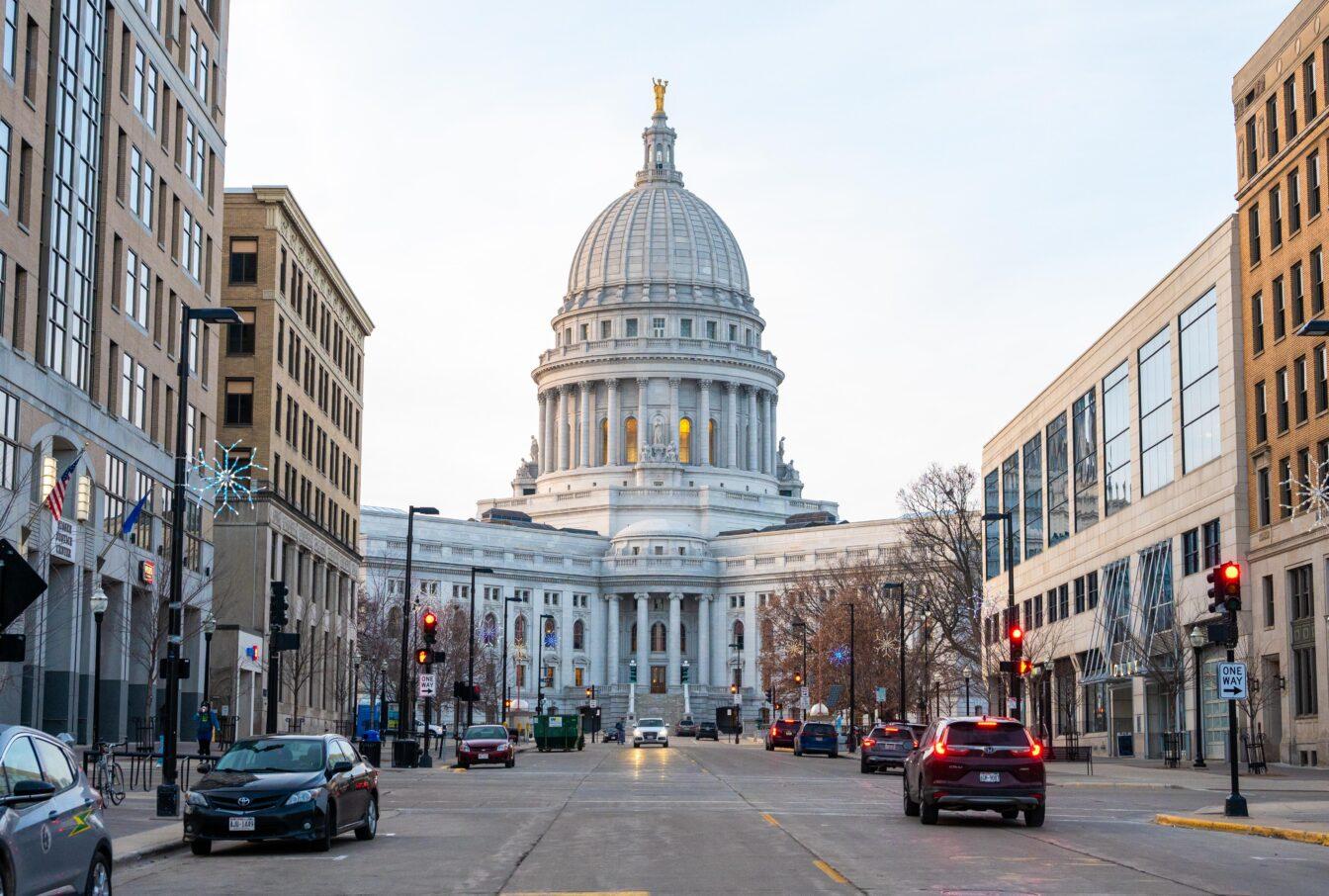Wisconsin received an “F” on the 2023 Shared Hope International Report Card, which grades all U.S. states on their legislative efforts related to child and youth sex trafficking, scoring a 49 out of 100 — a 3.5 point increase from 2021.
The report card uses a legislative framework that analyzes six issue areas, including criminal provisions, identification of and response to victims, to create a final letter grade that reflects the overall effectiveness and comprehensiveness of a state’s legal framework in addressing child and youth sex trafficking.
In total, the report card issued 32 “F” grades with the only “A” being assigned to Tennessee. This is due to Tennessee’s continuous push for new legislation, and the prohibition of criminalization of child-sex trafficking victims for prostitution offenses, Shared Hope International Director of Policy Research Sarah Roberts said.
But, Roberts said the report cards are a fairly new initiative and should be interpreted as a “starting point” for states who received a failing grade.
“Grades are low across the country, so that’s not necessarily an indictment of Wisconsin in particular, it’s just it’s a new starting point,” Robert said. “It’s a new starting point, hopefully a call to action to legislators to close some of the gaps in the laws.”
Tennessee also stands out in its emphasis on education and training regarding the identification and intervention in child sex trafficking, Roberts said.
“There are strong laws on training that ensure that all of those stakeholders that may interact with child sex trafficking victims … [individuals] are trained so that they can identify trafficking victimization,” Roberts said.
One of the primary reasons for Wisconsin’s low grade has to do with the lack of Safe Harbor laws provided to victims of sex-trafficking, according to the Wisconsin Report Card. Wisconsin is one of 21 states that does not provide Safe Harbor for sex-trafficked victims, which in turn allows individuals under the age of 18 to be arrested and prosecuted for prostitution offenses.
Gaps in training for child-welfare groups in contact with potential child sex-trafficking victims such as teachers, law enforcement, and juvenile justice agencies also contributed to the low score.
Roberts said aside from legislation and training, one of the largest combatants to sex trafficking is providing more awareness of the issue to the general public. When individuals are able to identify victimization in peers or those around them, they can take appropriate next steps, Roberts said.
Local groups like Awaken Wisconsin aim to fill the service gaps and advocate for change through education about commercial sexual exploitation. Awaken Wisconsin Executive Director Kasia Klaus said talking to victims of trafficking helps find gaps in the current system and identify effective prevention strategies.
“I think a lot of that is getting lived experience by talking to survivors who have been trafficked in our state to see where we have failed them,” Klaus said. “If we can prevent this from happening, we don’t have to focus as much on [restoration], which is a lot harder and a lot more intense.”
Though the University of Wisconsin facilitates the 4W Initiative, which aims to foster social transformations to end human trafficking and sexual exploitation through the Social Transformations to End Exploitation and Trafficking for Sex Project, UW does not currently offer specific services for sex trafficking on campus, 4W STREETS Initiative Director of Research Lara Gerassi said in an email statement to The Badger Herald.
Gerassi’s work focuses on exploring the dynamics of sex trading for compensation among minors and adults, aiming to understand the motivations, circumstances, and potential harms involved. By dissecting the conditions that may lead to violence or exploitation within this context, her research aims to illuminate pathways for harm reduction and prevention.
Gerassi agreed that Safe Harbor laws are critical to protect sex-trafficked youth, and said survivors, especially those from marginalized communities, such as people of color and LGBTQ+ individuals, may experience additional barriers due to increased law enforcement involvement and the lack of inclusive support services. Because of this, Gerassi said it is crucial to create inclusive and representative services and educational programs that cater to the diverse experiences of all survivors.
While UW does not offer trafficking specific services, Gerassi said some university students are trading sex but are not trafficked, and could benefit from UW services related to information on trading sex for compensation.
The Wisconsin Report Card said attempts to pass Safe Harbor legislation has been unsuccessful in the past, but a recent legislative package recently passed through the Wisconsin State Assembly that targets human trafficking in Wisconsin.
Feb. 15, the latest package of legislation aimed at combating human trafficking was passed, according to press release by Rep. Jon Plumer (R-Lodi), who was on the task force developing this legislation over the last six months.
Resources regarding human trafficking assistance:
- To get help from the 24/7 National Human Trafficking Hotline, call 1-888-373-7888 or text 233733
- To report suspected human trafficking to Federal law enforcement, 1-866-347-2423
- Support materials for child victims and witnesses of human trafficking.
- Support materials for victims and survivors of human trafficking.


